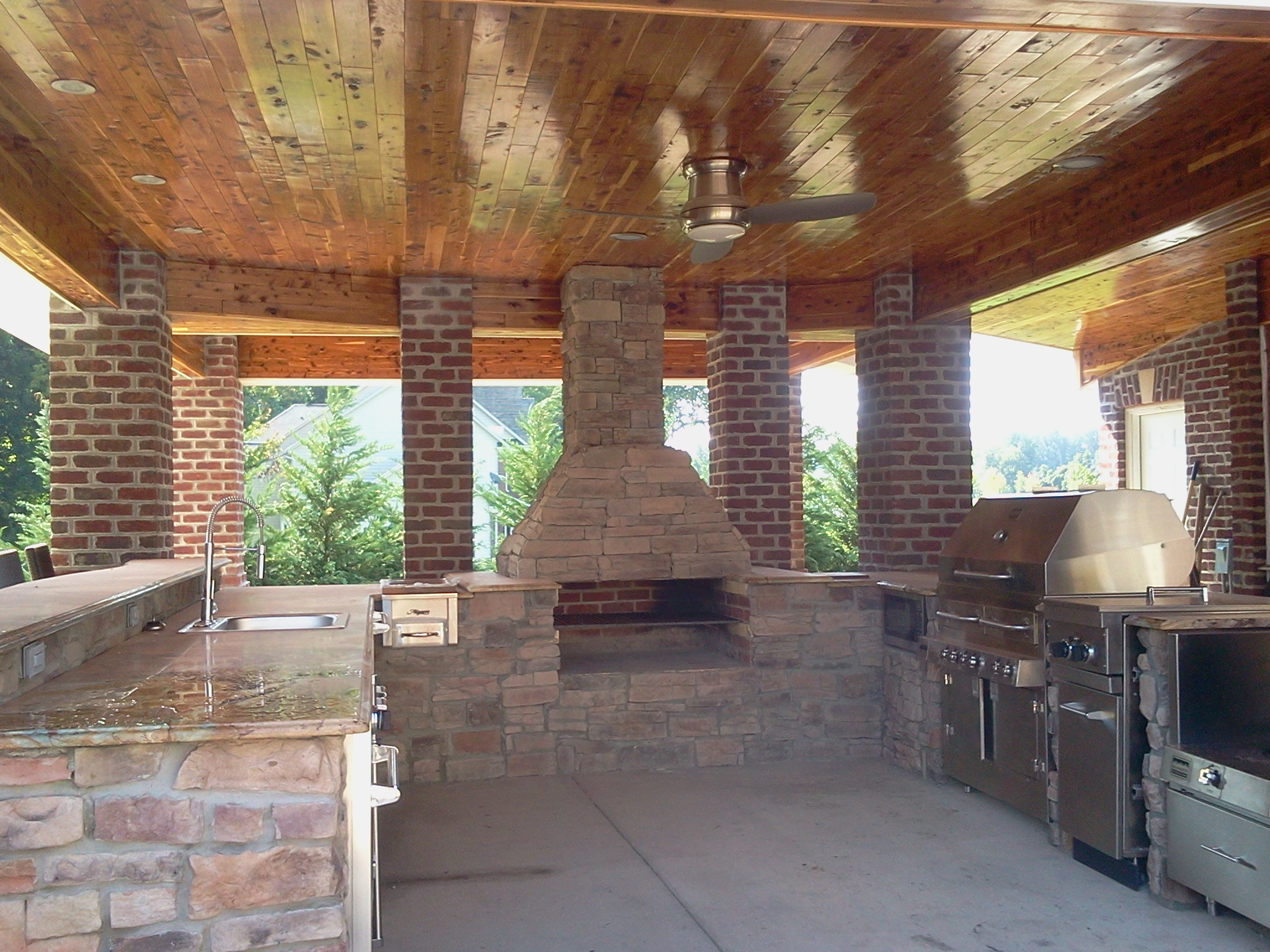
An outdoor wood stove is a wood burning stove that sits away from your home and supplies heat through a boiler system rather than the direct heat that an indoor wood stove provides. They are an efficient and effective option for any homeowner that prefers to heat their homes with wood and without the inconveniences of more common propane, natural gas, or electric alternatives.
How an Outdoor Wood Stove Operates
Outdoor boilers work on a very simple principle. Instead of having a wood stove inside your home, which can lead to indoor air pollution, unpleasant odors, and fire danger, an outdoor wood stove is a separate structure away from your home that heats your house indirectly. An outdoor wood burning stove heats up a water reservoir, then sends that water through underground hoses to your home. A heat exchanger is installed in your current furnace that transfers the heat from the water to your furnace blower, and the heat produced by your outdoor boiler is then circulated throughout your home.
Why an Outdoor Wood Stove is Superior to Indoor Wood Stoves
Compared to outdoor models, an indoor wood stove has a number of disadvantages. For starters, they’re inconvenient. They take up space and can produce unpleasant odors in your home. From a health and safety perspective they also create unhealthy amounts of indoor air pollution and are a significant fire risk. And finally, an outdoor wood burning stove poses no threat to those in the dwelling. If you’ve got children and currently have an indoor wood burning stove, you know how nice it would be to remove that safety hazard from your home altogether.
The Downside of an Outdoor Wood Stove
While an outdoor stove provides safe and efficient heat to your home, they don’t come without disadvantages. Most of these drawbacks, however, can be alleviated if you spend a little extra money and get one of the best outdoor wood furnace models. The main complaint of these stoves is their smoke production. Because they are built with regulators to prevent the water reservoir from getting too hot, many produce an inconvenient amount of smoke while they operate. This isn’t a problem if you live in a rural setting, but if you’re a suburbanite, you can expect to get complaints from the neighbors about the smoke resulting from your outdoor stove. The other major complaint with these stoves is longevity. Again, this is primarily a problem encountered when homeowners buy cheaper versions of these stoves, which can rust and deteriorate rather quickly. If you’re willing to shell out for one of the best outdoor wood furnace models, however, you’ll get an efficient, low-smoke, long-lasting model that will heat your home for years to come.
Shopping for an Outdoor Wood Stove
When you shop for an outdoor wood stove there are several things to keep in mind. First of all, look for a model that burns fuel efficiently. This will drastically reduce smoke emissions and reduce the amount of fuel you go through, saving you money and labor and reducing the chances you’ll hear gripes from the neighbors. Also, look for a unit with a high smokestack. When it comes to complaints, the lower the smoke stack, the more complaints you’re bound to get. Finally, look for an outdoor stove with an internal chimney rather than one that runs up the outside of the stove. Outdoor chimneys develop higher creosote deposits because of their increased exposure to cold, which in turn means an increased fire danger. Internal chimneys are much more efficient in this department, and are well worth the extra cost.
If you’re considering outdoor wood heat for your home, purchasing one of the best outdoor wood furnace models you can find is a must. And, because installing a wood stove involves not only installing the stove but also a boiler system that integrates with your current home heating system, it’s best to talk to a contractor experienced in installing these stoves in order to get your new outdoor wood burning stove installed correctly and safely, minimizing the need for significant expenses like the cost of heat exchanger replacement.
 Turn Your Fireplace into a Work of Art with a Fireplace Surround
Turn Your Fireplace into a Work of Art with a Fireplace Surround  Preventive Maintenance: Chimneys
Preventive Maintenance: Chimneys  Chimney Bombs
Chimney Bombs  Stoking the Fire: Fireplace Remodels
Stoking the Fire: Fireplace Remodels  Choose the Best Fireplace for Your Home
Choose the Best Fireplace for Your Home 

I have just been told by a dealer in outdoor woodburners that consumers can no longer use them to heat their homes. Is this true? Anyone have any info on this?
Rosemarie,
This is a late response but that statement is not true. I am sure you already have your answer on this, I just wanted to make sure you knew that consumers are still able to use outdoor wood burners. If you have any additional questions on this please call 218-283-3416.